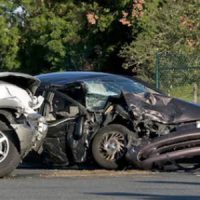Multi-Vehicle Accidents and Your Path to Financial Compensation

Accidents on Florida’s roads are unfortunately common, ranging from single-vehicle incidents to multi-vehicle collisions. When multiple vehicles are involved, the legal landscape can leave victims unsure of next steps. This is because while single accidents are relatively straightforward in terms of determining liability, accidents involving two or more vehicles introduce another layer of complexity.
It is also possible that various laws could be broken during a multi-vehicle collision. Then, different parties involved may be subject to legal consequences. Determining who is at fault becomes crucial in holding responsible parties legally accountable and seeking compensation for medical expenses, property damage, and other losses. Talk to a Clearwater criminal lawyer about your options moving forward.
Identifying Liability and Traffic Violations
One of the immediate challenges after a Florida multi-vehicle accident is identifying why the crash happened and if it was the result of driver behavior. This often requires a thorough investigation by law enforcement, insurance companies, and legal professionals.
Some of the traffic violations that can prompt an accident include the following.
- Reckless driving. Excessive speeding, aggressive driving, and ignoring traffic signals are all examples of reckless driving.
- Failing to yield. Drivers who fail to yield the right of way or disregard traffic signs and cause a multi-vehicle collision as a result may be held liable.
- Drivers are required to maintain a safe following distance. Tailgating can contribute to multi-vehicle collisions, especially if the lead vehicle suddenly stops.
- DUI laws. Driving under the influence of alcohol or drugs is a serious offense, and if a driver involved in a collision is found to be intoxicated in the wake of an accident, DUI charges are possible.
- Distracted driving. Florida has laws against texting while driving, so if a driver hits another vehicle while distracted by a mobile device, they can be held responsible.
- Improper lane changes. Making unsafe or improper lane changes without signaling can contribute to accidents. Drivers are required to use turn signals and ensure that it is safe to change lanes.
The state of Florida’s no-fault insurance system requires drivers to carry Personal Injury Protection (PIP) coverage, and many people rely on their PIP coverage to pay off medical expenses and lost wages. That said, you need to consider the severity of your injuries, the total damages incurred, and the limits of your PIP coverage.
Consult with an Experienced Injury Attorney
When you share the details of your situation with a Clearwater criminal lawyer, they can provide you with valuable insights into the best course of action based on the specifics of your case. Talking through the complexities of liability, navigating the legal landscape, and making informed decisions about whether to use your PIP coverage or pursue legal action are ways to be sure you are securing the compensation you deserve.
Do you know who was responsible for a multi-vehicle crash you were involved in? If you find yourself receiving a lot of bills after a multi-vehicle accident, seeking guidance from the knowledgeable legal team at King Law Group can make all the difference in your path to recovery and financial restitution. Schedule your free consultation today.

